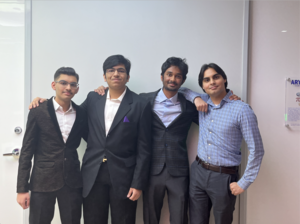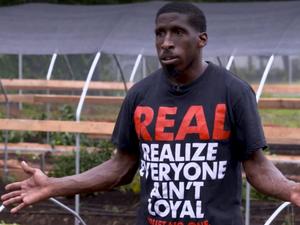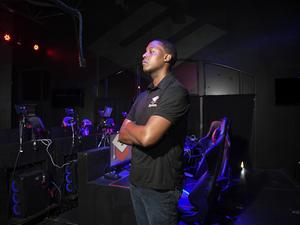
Founding a new company can be difficult, especially when you are also balancing college courses and visa procedures.
Launched last year, orientation mobility startup Sahai is preparing to release its technology into the world, with a focus helping others and the environment. However, the software has the potential to be a big player in other industries.
The idea began with UT Dallas student Maithreya Chakravarthula when he was working with nonprofits assisting the blind and visually impaired. He noticed that as people were going blind, they would take special courses to help them begin to navigate without the use of sight. Combining these insights with his tech background, the startup was formed.
“I kept on going day in and day out, and saw what the patients were facing,” Chakravarthula said. “I thought my educational background and the projects I was working on fit the solution that I envisioned, based on the problems I've noticed. Accessibility ignites innovation. If you look at the most successful and widely used products, they’ve all begun as a solution from someone… who has an issue getting along with a normal lifestyle.”
The Sahai team of nine employees – which is currently spread across Texas, India and Pakistan - got to work, building a data set of about 8 million images to create its model. After running through about five different versions of the software, the team landed on its solution. The startup's technology uses AI and machine vision to detect a given object. It can then give the user audio instructions about how far the object is from them, what obstacles are in the way and directions on how to navigate the space between user and object.
[embed]https://youtu.be/doyaKVKrowk[/embed]
“I like to give the analogy of the human mind and the human brain, as we grow up, we humans look and observe what objects are, what they do, what are their characteristics. In simple terms, we try to recreate that with artificial intelligence,” Chakravarthula said.
So far, the software can recognize about 180 different objects, from water bottles and laptops to humans and street signs. Sahai plans to release the app version of the technology by the end of the month. The startup expects that as it brings on more users, its database of objects will grow.
“If we can provide independence and we help other people lead and active and safe lifestyle, I think for us is the biggest win. At the end of the day, that’s why we got started that’s how we got started and that is the goal we are trying to approach,” Chakravarthula said.
Sahai is also working to integrate its technology with the sustainability industry. It is developing a device that can scan an object placed in front of it, then tell the user whether the object is recyclable. And, if so, which bin it should be placed into.
Chakravarthula also said Sahai is looking to integrate its capabilities into the retail sphere, with a product that could tell stores which type of people looked at displays, as well as the rate of purchase and time spent looking at the product.
However, that is just one of the possibilities Sahai sees its software being used for. After the launch of its app, the company plans to aggregate its data set and open it up to other developers through an online platform. The platform is expected to be available in about six weeks.
"If we can provide independence and we help other people lead and active and safe lifestyle, I think for us is the biggest win."
“My vision is pretty clear, I want to bring as many people into using this tech to provide as many different solutions as possible,” Chakravarthula said. “[Part of the goal] is to grow into a platform that is not only based on assisted tech but helps potential developers build… unique solutions.”
Since its founding, Sahai has been largely bootstrapped. However, Chakravarthula said that having resources from the Blackstone LaunchPad at UT Dallas was helpful in developing the idea and the business. Sahai was also one of the winners of the university’s annual Big Idea Competition, which landed the company a cash prize.
As the company progresses after launching its product, it plans to continue working on new features, including text transcription and curb detection, as well as any special requests from new users.
“For us, what worked really well was starting it up after most of the pieces were done and looked at… it helps boost our credibility and from an investment point of view, it just changes their perception,” Chakravarthula said. "For me personally, I’m a believer in creating products that I would use or that my family would use.”








